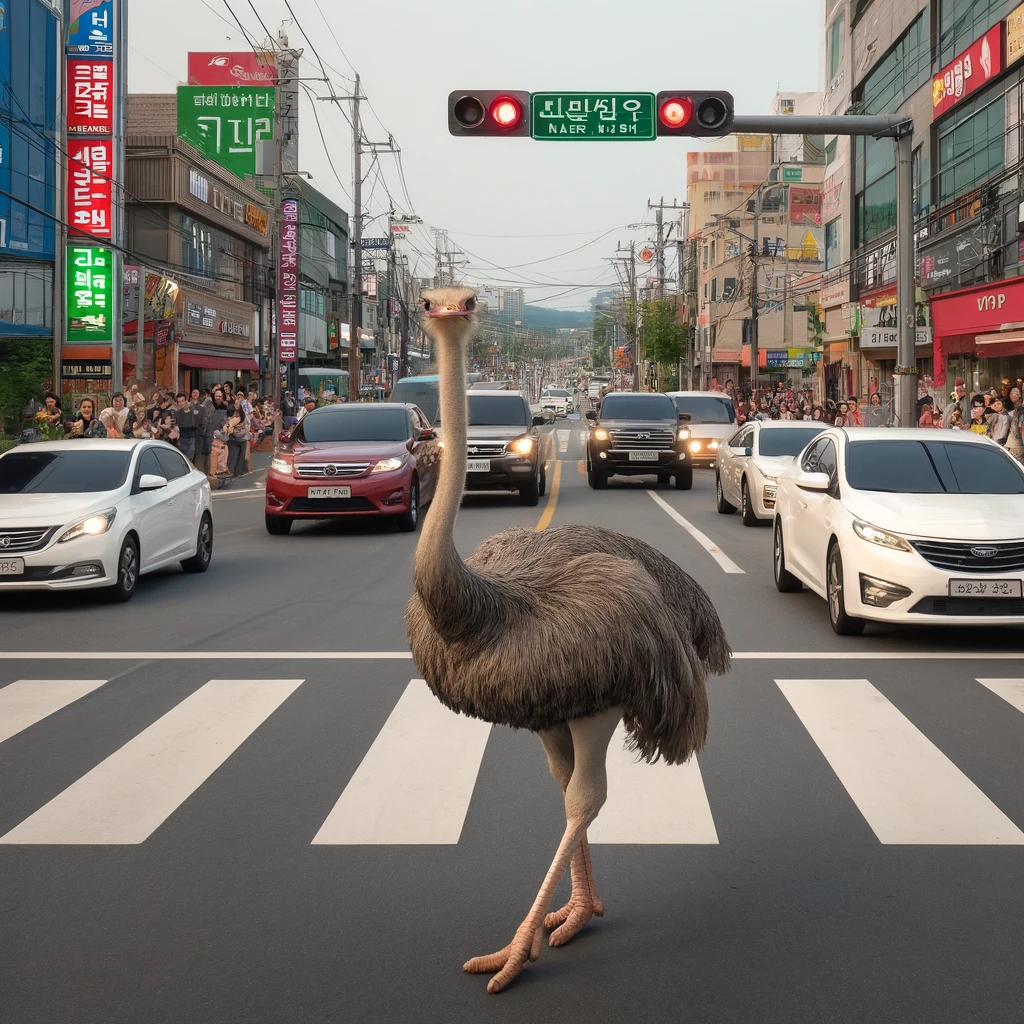A group in the UK that watches out for people’s rights has warned some popular websites about how they use cookies. Cookies are little files that websites put on your computer to collect information, show you ads that match your interests, and keep track of what you do online. The group says that these websites are not giving users clear choices about cookies and has given them 30 days to follow the rules. They haven’t said which websites they’re talking about, but they have told them to fix the problem.
Cookies can do lots of different things, like helping websites work properly and showing you ads that are relevant to you. They can also keep track of what you do on a website, where you are, what device you’re using, and where you go online afterwards. For many websites, cookies are important for showing ads, but some people find it invasive. It’s common for people to visit a website or buy something and then see ads related to that on other websites.
When you visit a website, you might see a pop-up about cookies. This is supposed to give you control over them, but it can be confusing. For example, if you close the pop-up without choosing anything, it might mean you’re saying yes or no to cookies depending on the website. The group that watches out for people’s rights has said that websites should make it just as easy for you to say no to cookies as it is to say yes. Websites can still show ads even if you say no to tracking, but the ads shouldn’t be based on what you’ve been looking at.
Right now, there are rules about cookies that are split between two laws. One is called the General Data Protection Regulation (GDPR) and the other is called the Privacy and Electronic Communications Regulations (PECR). The PECR is also known as the “cookie law” because it introduced the pop-ups about cookies. But there might be new rules soon to make fewer pop-ups. These new rules would let websites collect certain types of information without asking for permission, but this has made some people who care about privacy worried.
The group that watches out for people’s rights says that lots of people are concerned about companies using their personal information without asking. They want companies to make the changes they need to follow the rules or there will be consequences. The group will give an update about this in January and will say which companies haven’t done what they’re supposed to. This is part of their bigger effort to protect people’s rights when it comes to online ads.
Original news source: Crunch time for cookie use, watchdog warns (BBC)
Listen
Slow
Normal
Fast
Group or Classroom Activities
Warm-up Activities:
– News Summary
Instructions:
1. Divide the class into small groups.
2. Give each group a copy of the article.
3. Ask each group to read the article and summarize the main points in 3-4 sentences.
4. After a designated time, ask each group to share their summaries with the class.
5. Encourage class discussion and compare the different summaries.
– Opinion Poll
Instructions:
1. Divide the class into pairs.
2. Ask each pair to discuss their opinions about cookies and online privacy.
3. Provide a list of statements related to the topic (e.g. “I am concerned about companies using my personal information without permission”).
4. In each pair, one student will take the “agree” stance and the other will take the “disagree” stance.
5. Give the pairs a few minutes to discuss and come up with their reasons.
6. Have each pair present their opinions and reasons to the class.
7. Encourage respectful debate and allow other students to ask questions or challenge the opinions presented.
– Vocabulary Pictionary
Instructions:
1. Write down key vocabulary words from the article on separate pieces of paper.
2. Divide the class into two teams.
3. One student from each team will come to the front of the class.
4. Show the student a vocabulary word and give them 30 seconds to draw a picture representing that word.
5. The rest of the team must try to guess the word based on the drawing.
6. If the team guesses correctly within the time limit, they earn a point.
7. Continue with different students and vocabulary words until all words have been used.
8. The team with the most points at the end of the game wins.
– Pros and Cons
Instructions:
1. Divide the class into small groups.
2. Assign each group a topic related to cookies and online privacy (e.g. “The use of cookies benefits users”).
3. Ask each group to brainstorm a list of pros and cons for their assigned topic.
4. After a designated time, have each group present their lists to the class.
5. Encourage class discussion and allow other students to add to the lists or challenge the points presented.
6. Summarize the main pros and cons as a class.
– Future Predictions
Instructions:
1. Ask the class to imagine what the future of cookies and online privacy might look like.
2. Divide the class into pairs or small groups.
3. In their pairs or groups, ask the students to discuss and make predictions about how cookies and online privacy might change in the next 10 years.
4. After a designated time, have each pair or group share their predictions with the class.
5. Facilitate a class discussion about the different predictions and encourage students to support their ideas with reasons or evidence from the article.
Comprehension Questions:
1. What are cookies and what do they do on websites?
2. Why has a group in the UK warned popular websites about their use of cookies?
3. How do cookies track your online activities?
4. Why do some people find cookies invasive?
5. What is the purpose of the pop-up about cookies on websites?
6. According to the group, how should websites handle users’ choices about cookies?
7. What are the current rules about cookies and where are they split between?
8. Why are some people worried about potential new rules regarding cookies?
Go to answers ⇩
Listen and Fill in the Gaps:
A group in the UK that watches out for people’s rights has warned some popular websites about how they use cookies. Cookies are little (1)______ that websites put on your computer to collect information, show you ads that match your interests, and keep track of what you do online. The group says that these websites are not giving users (2)______ choices about cookies and has given them 30 days to follow the rules. They haven’t said which websites they’re talking about, but they have told them to fix the problem.
Cookies can do lots of different things, like (3)______ websites work properly and showing you ads that are (4)______ to you. They can also keep track of what you do on a website, where you are, what device you’re using, and where you go online afterwards. For many websites, cookies are important for showing ads, but some (5)______ find it (6)______. It’s common for people to visit a website or buy something and then see ads related to that on other websites.
When you visit a website, you might see a pop-up about cookies. This is (7)______ to give you (8)______ over them, but it can be confusing. For example, if you close the pop-up without choosing anything, it might mean you’re saying yes or no to cookies depending on the website. The group that watches out for people’s rights has said that websites should make it just as easy for you to say no to cookies as it is to say yes. Websites can still show ads even if you say no to tracking, but the ads shouldn’t be (9)______ on what you’ve been looking at.
Right now, there are rules about cookies that are (10)______ between two laws. One is called the General Data Protection (11)______ (GDPR) and the other is called the (12)______ and Electronic Communications Regulations (PECR). The PECR is also known as the “cookie law” because it introduced the pop-ups about cookies. But there might be new rules soon to make fewer pop-ups. These new rules would let (13)______ collect certain types of information without asking for permission, but this has made some people who care about (14)______ worried.
The group that watches out for people’s rights says that lots of people are concerned about companies using their personal information without asking. They want companies to make the changes they need to follow the rules or there will be (15)______. The group will give an update about this in January and will say which companies haven’t done what they’re supposed to. This is part of their bigger effort to protect people’s rights when it (16)______ to online ads.
Go to answers ⇩
Discussion Questions:
Students can ask a partner these questions, or discuss them as a group.
1. What is a cookie and what does it do on websites?
2. How would you feel if websites collected your personal information without asking?
3. Do you like seeing ads that are relevant to your interests? Why or why not?
4. Do you think websites should make it easier for users to say no to cookies? Why or why not?
5. What do you think about the idea of new rules that would allow websites to collect certain information without permission?
6. How do you feel about companies using your personal information for online ads?
7. Have you ever seen a pop-up about cookies when visiting a website? How did you respond?
8. What changes do you think companies should make to follow the rules about cookies?
9. How do you think the group that watches out for people’s rights can protect people’s rights when it comes to online ads?
10. Why do you think some people find cookies invasive?
11. Have you ever noticed ads on other websites related to something you looked at or bought online? How did you feel about it?
12. What consequences do you think companies should face if they don’t follow the rules about cookies?
13. How important is your privacy to you when using the internet? Why?
14. Do you think the current rules about cookies are effective in protecting people’s rights? Why or why not?
15. What changes would you like to see in the way websites use cookies?
Individual Activities
Vocabulary Meanings:
Match each word to its meaning.
Words:
1. cookies
2. websites
3. ads
4. track
5. rules
6. pop-up
7. permission
8. privacy
Meanings:
(a) Approval or consent to do something
(b) Online pages that you visit
(c) Promotional messages that try to sell you something
(d) Guidelines that must be followed
(e) Protection of personal information and data
(f) Follow and monitor your online activities
(g) A small window that appears on a website
(h) Small files that collect information on your computer
Go to answers ⇩
Multiple Choice Questions:
1. What are cookies?
(a) Little files that websites put on your computer to collect information
(b) Delicious treats you can eat while browsing the internet
(c) Websites that track your online activity
(d) Ads that match your interests
2. Why has a group in the UK warned popular websites about their use of cookies?
(a) The websites are not showing relevant ads
(b) The websites are not working properly
(c) The websites are not giving users clear choices about cookies
(d) The websites are not collecting enough information
3. What can cookies do on websites?
(a) Show you ads that have nothing to do with your interests
(b) Help websites work properly and show you relevant ads
(c) Collect personal information without your permission
(d) Track your online activity and sell it to other companies
4. What is the purpose of the pop-up about cookies?
(a) To give users control over cookies
(b) To confuse users about cookies
(c) To prevent users from accessing websites
(d) To show users irrelevant ads
5. What are the current rules about cookies called?
(a) Pop-up laws
(b) General Data Protection Regulation (GDPR) and Privacy and Electronic Communications Regulations (PECR)
(c) Cookie laws
(d) Online ad regulations
6. What might be the new rules regarding cookies?
(a) More pop-ups and stricter regulations
(b) No rules regarding cookies
(c) All cookies banned from websites
(d) Fewer pop-ups and certain types of information collected without permission
7. What are some people worried about regarding the new rules?
(a) Websites showing irrelevant ads
(b) Websites not working properly
(c) Websites not using cookies at all
(d) Websites collecting personal information without permission
8. What will the group that watches out for people’s rights do in January?
(a) Introduce new rules about cookies
(b) Shut down websites that don’t comply with the rules
(c) Give an update about companies that haven’t followed the rules
(d) Stop using cookies altogether
Go to answers ⇩
True or False Questions:
1. Websites should make it difficult to say no to cookies compared to saying yes.
2. The group has given the websites 30 days to fix the issue.
3. Some people find cookies invasive because they track online activity.
4. Cookies can help websites function properly and show relevant ads.
5. Cookies are large files that do not collect information and show random ads.
6. New rules may be introduced to increase the number of pop-ups related to cookies.
7. The group claims that these websites are not providing clear choices about cookies.
8. A UK group is praising popular websites for their use of cookies.
Go to answers ⇩
Write a Summary:
Write a summary of this news article in two sentences.
Check your writing now with the best free AI for English writing!
Writing Questions:
Answer the following questions. Write as much as you can for each answer.
Check your answers with our free English writing assistant!
1. What are cookies and what do they do on websites?
2. Why are some people concerned about cookies?
3. How do websites currently ask for permission to use cookies?
4. What are the two laws that currently regulate cookies?
5. What consequences might companies face if they don’t follow the rules about cookies?
Answers
Comprehension Question Answers:
1. What are cookies and what do they do on websites?
Cookies are little files that websites put on your computer to collect information, show you ads that match your interests, and keep track of what you do online.
2. Why has a group in the UK warned popular websites about their use of cookies?
The group says that these websites are not giving users clear choices about cookies and has given them 30 days to follow the rules.
3. How do cookies track your online activities?
Cookies can keep track of what you do on a website, where you are, what device you’re using, and where you go online afterwards.
4. Why do some people find cookies invasive?
Some people find cookies invasive because they collect personal information without always asking for permission and can show ads based on what you’ve been looking at.
5. What is the purpose of the pop-up about cookies on websites?
The purpose of the pop-up about cookies is to give users control over them and allow them to choose whether to accept or reject cookies.
6. According to the group, how should websites handle users’ choices about cookies?
According to the group, websites should make it just as easy for users to say no to cookies as it is to say yes. Websites can still show ads even if users say no to tracking, but the ads shouldn’t be based on their browsing history.
7. What are the current rules about cookies and where are they split between?
The current rules about cookies are split between two laws: the General Data Protection Regulation (GDPR) and the Privacy and Electronic Communications Regulations (PECR).
8. Why are some people worried about potential new rules regarding cookies?
Some people are worried about potential new rules regarding cookies because they fear that these rules would allow websites to collect certain types of information without asking for permission, which could compromise their privacy.
Go back to questions ⇧
Listen and Fill in the Gaps Answers:
(1) files
(2) clear
(3) helping
(4) relevant
(5) people
(6) invasive
(7) supposed
(8) control
(9) based
(10) split
(11) Regulation
(12) Privacy
(13) websites
(14) privacy
(15) consequences
(16) comes
Go back to questions ⇧
Vocabulary Meanings Answers:
1. cookies
Answer: (h) Small files that collect information on your computer
2. websites
Answer: (b) Online pages that you visit
3. ads
Answer: (c) Promotional messages that try to sell you something
4. track
Answer: (f) Follow and monitor your online activities
5. rules
Answer: (d) Guidelines that must be followed
6. pop-up
Answer: (g) A small window that appears on a website
7. permission
Answer: (a) Approval or consent to do something
8. privacy
Answer: (e) Protection of personal information and data
Go back to questions ⇧
Multiple Choice Answers:
1. What are cookies?
Answer: (a) Little files that websites put on your computer to collect information
2. Why has a group in the UK warned popular websites about their use of cookies?
Answer: (c) The websites are not giving users clear choices about cookies
3. What can cookies do on websites?
Answer: (b) Help websites work properly and show you relevant ads
4. What is the purpose of the pop-up about cookies?
Answer: (a) To give users control over cookies
5. What are the current rules about cookies called?
Answer: (b) General Data Protection Regulation (GDPR) and Privacy and Electronic Communications Regulations (PECR)
6. What might be the new rules regarding cookies?
Answer: (d) Fewer pop-ups and certain types of information collected without permission
7. What are some people worried about regarding the new rules?
Answer: (d) Websites collecting personal information without permission
8. What will the group that watches out for people’s rights do in January?
Answer: (c) Give an update about companies that haven’t followed the rules
Go back to questions ⇧
True or False Answers:
1. Websites should make it difficult to say no to cookies compared to saying yes. (Answer: False)
2. The group has given the websites 30 days to fix the issue. (Answer: True)
3. Some people find cookies invasive because they track online activity. (Answer: True)
4. Cookies can help websites function properly and show relevant ads. (Answer: True)
5. Cookies are large files that do not collect information and show random ads. (Answer: False)
6. New rules may be introduced to increase the number of pop-ups related to cookies. (Answer: False)
7. The group claims that these websites are not providing clear choices about cookies. (Answer: True)
8. A UK group is praising popular websites for their use of cookies. (Answer: False)
Go back to questions ⇧















